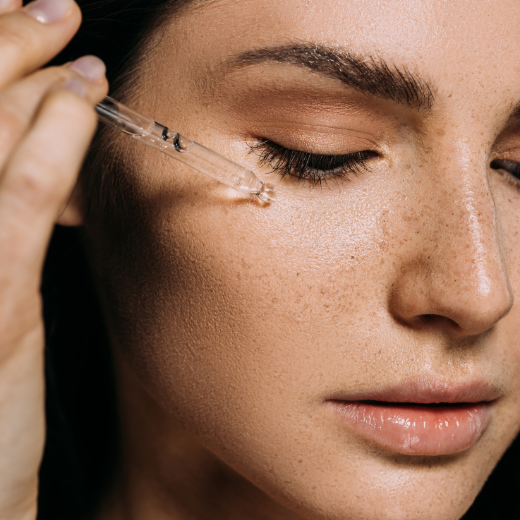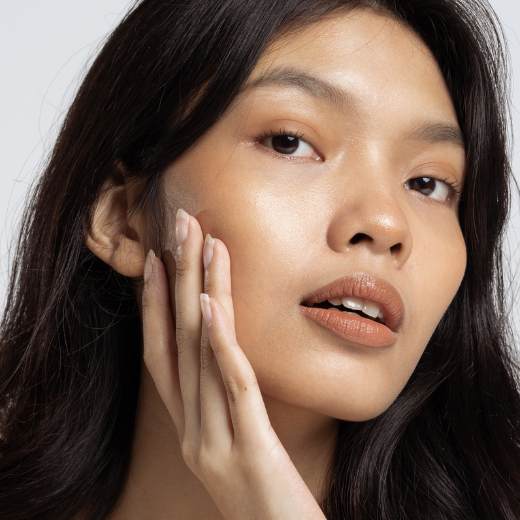Does Your Skin Color Affect Your Skin Care?
Posted by Nikki Wisher on Nov 28th 2023
We can all look around us and see the rainbow of skin colors in our communities and neighborhoods, but there’s an ongoing problem in the cosmetics industry of designing products primarily (or only) for Caucasian skin. This isn’t just limited to the cosmetics industry either – it extends to a variety of products that are skin color-dependent, like undergarments and shapewear, and even bandages. Fortunately, we’re seeing more and more options appear in recent years that offer beautiful, effective products for all skin tones.
This naturally brings up the question: what about skin care? Does your skin color affect your skin’s needs? And if so, how do you know what skin care products are right for your skin? The short answer is that yes, your skin tone does affect your skin care, so let’s talk about it.
A Note About Skin Color or Skin Tone vs. Ethnicity
Before we dive in here, it’s important to note that in most cases, your skin’s needs are affected by your skin tone, not necessarily your ethnicity. People of similar ethnic backgrounds can have very different skin colors while people of entirely separate ethnicities can have similar skin colors.
When we talk about skin color or skin tone in the context of skin care, you want to think about not your ethnicity but your skin type on the Fitzpatrick skin type scale. This scale ranges from type 1 to type 6 and reflects how much pigment is in your skin and how your skin reacts to sun exposure. For example, type 1 skin is very pale and burns easily – it rarely tans. Type 6 skin, on the other hand, is very darkly pigmented and rarely or never gets a sunburn.
Ways Your Skin Color Affects Your Skin Care
While skin needs the same essentials from person to person – hydration and nourishment – there are some differences which, when you take them into account, can allow you to better care for your skin today and in the long term. Let’s look at some of these differences.
Sun Damage
Ever wonder why your skin develops a tan if you’ve been out in the sun? The pigment it’s producing is designed to shield your skin’s deeper layers from damage. It’s not surprising, then, that the more pigment you naturally have in your skin, the less vulnerable you are to sun damage.
No matter how dark your skin is, though, you still need to wear sunscreen daily because your skin will still accumulate damage like premature aging (even if that happens more slowly with darker skin). But the lighter your skin is, the more additional precautions you should take like wearing a wide-brimmed hat and sunglasses outdoors, minimizing your outdoor time during the sun’s peak hours of 10am to 2pm, and so on.
While we’re on the topic of sun protection, let’s talk about sunscreen. Some sunscreens, especially mineral sunscreens, can leave behind a white residue which is particularly noticeable in people with darker skin. To avoid or minimize that issue, look for a tinted sunscreen instead.
Hyperpigmentation
The term “hyperpigmentation” refers to any changing increase in your skin’s pigment – typically brown spots like age spots. Hyperpigmentation can also be a form of scarring. It’s called post-inflammatory hyperpigmentation or PIH, and this is what happens when you develop brown spots after an acne breakout, for example.
People with pigmented skin are more prone to hyperpigmentation than people with pale skin, so PIH is more common in pigmented skin after acne breakouts, eczema, and some intensive skin treatments. It isn’t just PIH, though – pigmented skin is also more prone to melasma, which is a type of hormone-based hyperpigmentation that is particularly common during pregnancy.
Fortunately, there are options. Vitamin C products can work well to reduce hyperpigmentation, as can products with glycolic acid, azelaic acid, niacinamide, or hydroquinone.

Risks for Certain Skin Conditions
As is the case with a variety of health conditions, there are some skin conditions that are more common in certain skin tones and skin types. For example, rosacea is most prominent in lighter skin while vitiligo tends to be more severe in people with dark skin. Keep in mind that these conditions can appear in anyone, but knowing which conditions you’re at a higher risk for will help you monitor your skin for any changes that you should bring to your dermatologist’s attention.
Scarring
When your skin is cut or pierced, your body heals the injury by creating scar tissue that closes the opening. But in some people, the body produces a particular type of scar called a keloid scar. Keloid scars are raised above the skin because the body has produced too much scar tissue, and they can be itchy or painful too. People of African descent are at a particularly high risk for keloid scarring (this is one of those cases that is affected more by ethnicity than skin color).
While there are some treatments that can reduce keloid scars after they form, there isn’t much you can do about your body’s tendency to produce keloids other than to be aware of this risk when you’re considering a tattoo, piercing, or cosmetic surgery.
Skin Cancer
We’ve already talked about the fact that skin pigment helps to protect your skin against sun damage, and yes, that does include skin cancer…but the risks might be different than you would expect. Unsurprisingly, people with lighter skin tend to get skin cancer more often than people with darker skin. But when people with darker skin do get skin cancer, the cancer tends to be more aggressive.
Skin cancer also appears in less common areas in people with darker skin, like under the nails, between fingers and toes, and on the bottoms of the feet. This is why annual skin cancer screenings are important for everyone, no matter what your skin color is or what you believe your risk level is.
Understanding Your Skin and Its Needs
Everyone’s skin has its own needs and features, and the more you know about your skin and its tendencies, the better you can care for its health. Your skin pigment plays a role just like other factors like your dryness or oiliness, your age, and so on. Take your new knowledge and design a skin care routine that gives you healthier, glowing skin.

https://www.webmd.com/skin-problems-and-treatments/features/skin-tones-skin-types

